I made an early run to Myer’s Park in Racine this morning to see what birds were present. It was nice to see a Short-billed Dowitcher, juvenile feeding in the puddles when I arrived. Other species present were Black-bellied Plover, Least Sandpipers, Lesser Yellowlegs, a Sanderling and Semipalmated Plovers. A beautiful morning to be out birding with clear skies, low winds and mild temps. I checked North Point Beach in Racine, there were no shorebirds present. Images were taken on August 31, 2014.
Short-billed Dowitcher
Binomial name: Limnodromus griseus
Category: Sandpipers, Phalaropes, and Allies
Size: 11” long, 19” wing span
Weight: 3.9 Oz.
Habitat: At breeding time they prefer moist tundra, open marshes, and bogs in the boreal zone, preferable close to fresh water inland. In migration and during winter they are found on saltwater tidal flats and marshes. They also can be found in flooded agricultural fields and freshwater mud flats.
Diet: Insects, insect larvae, crustaceans, marine worms, snails, mollusks, and aquatic larvae, sometimes seeds too in migration and during the breeding season.
Nesting: Nest is a shallow depression on the ground usually near water within think vegetation. The nest bowl is lined grasses, mosses, twigs, leaves and ptarmigan feathers. Typically 3-4 eggs olive-buff to brown in color are laid. Both adults incubate the eggs for about 21 days but the male takes care of the young after the hatch.
Cool facts: This bird as it probes up and down for food with its long bill has a sewing machine movement look. Some of the first shorebirds to migrate south, some as early as July and they young typically follow in August.

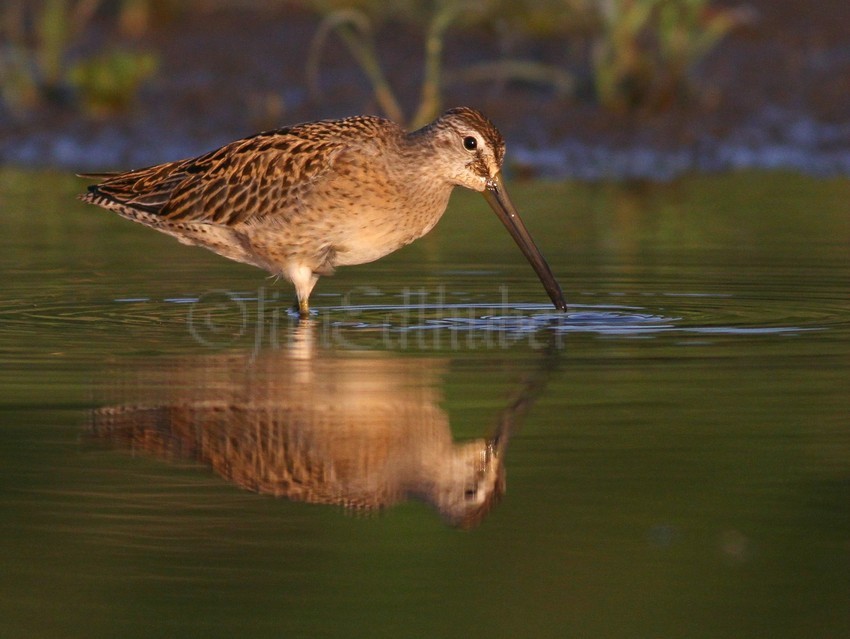
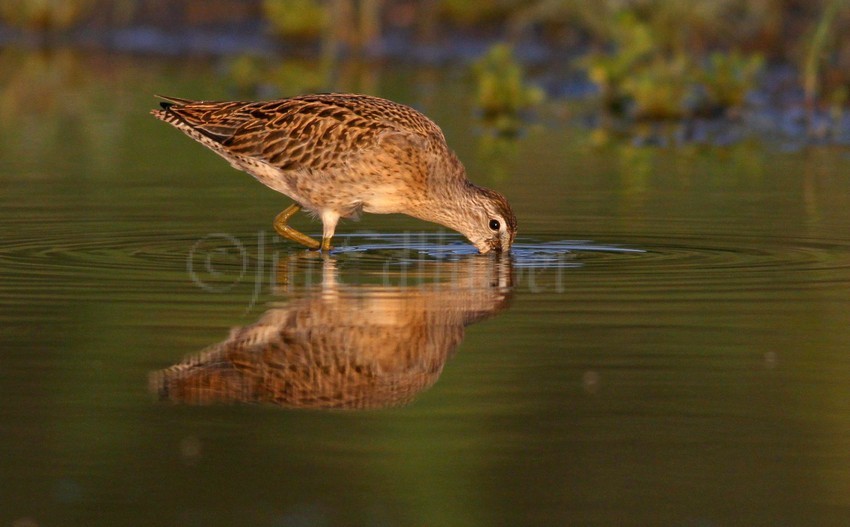
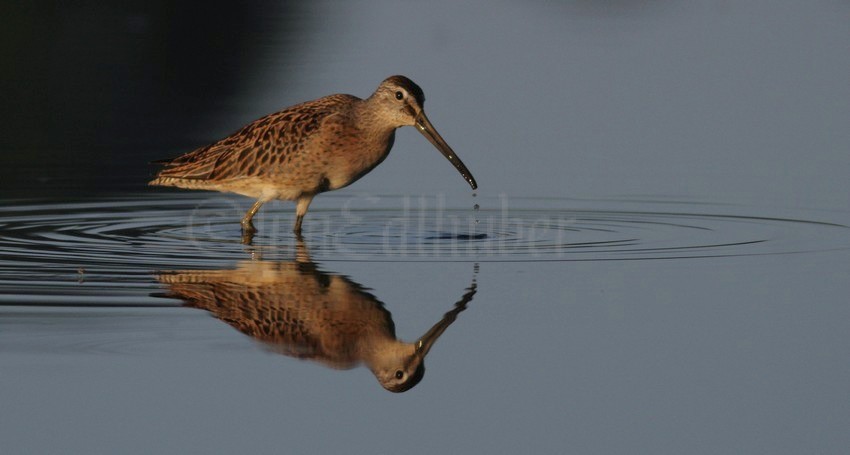

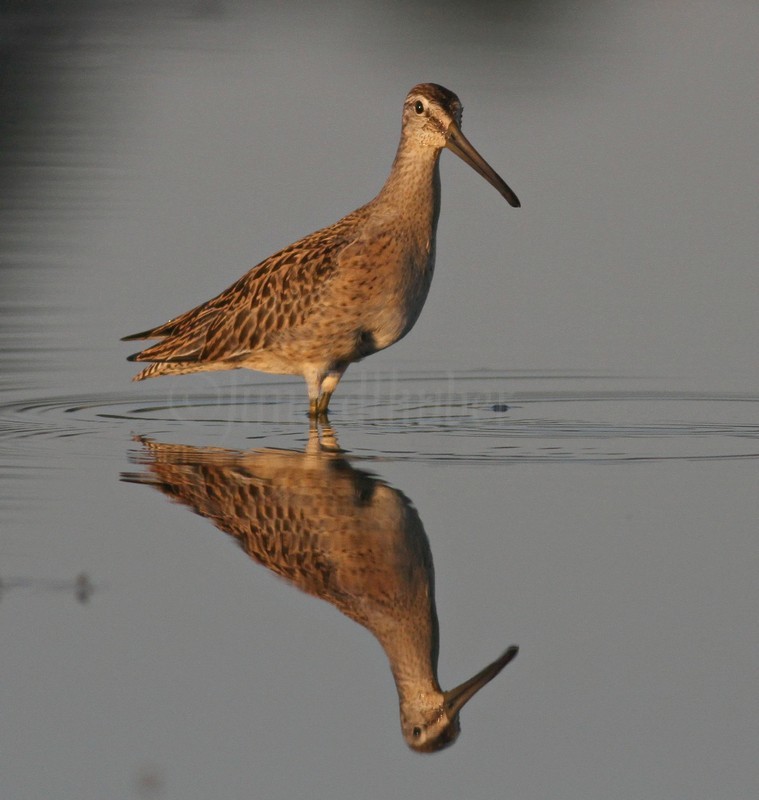
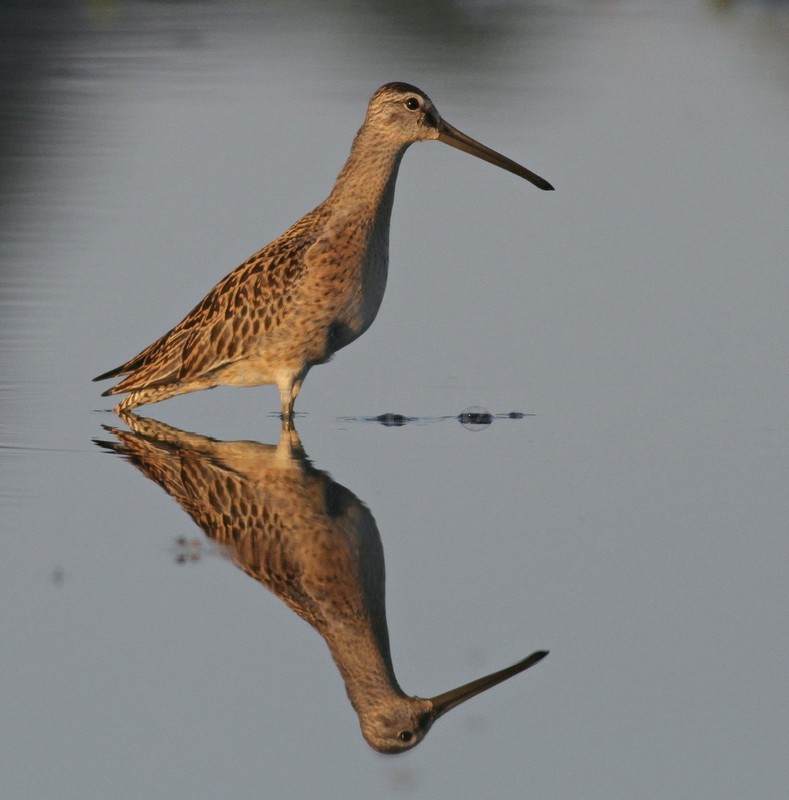
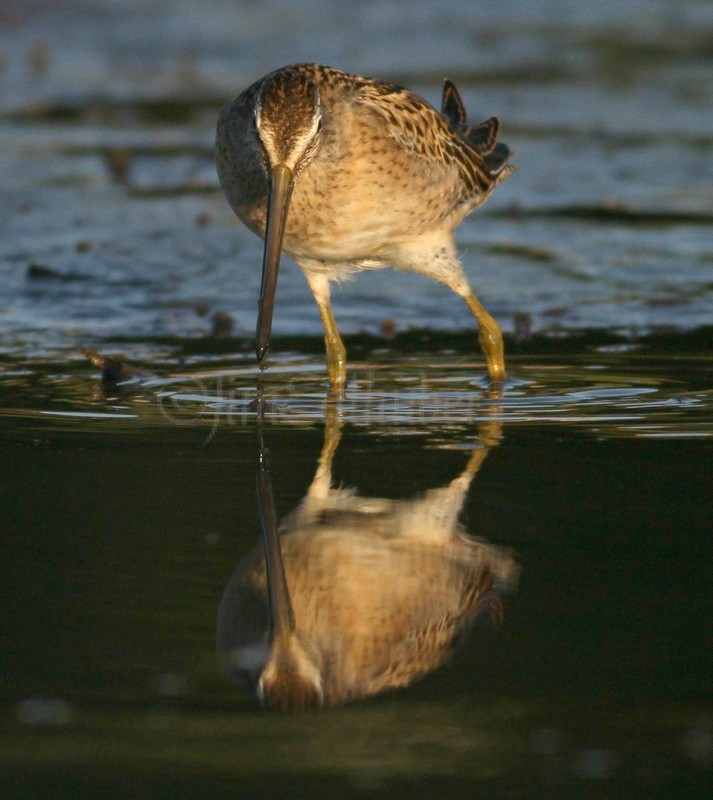
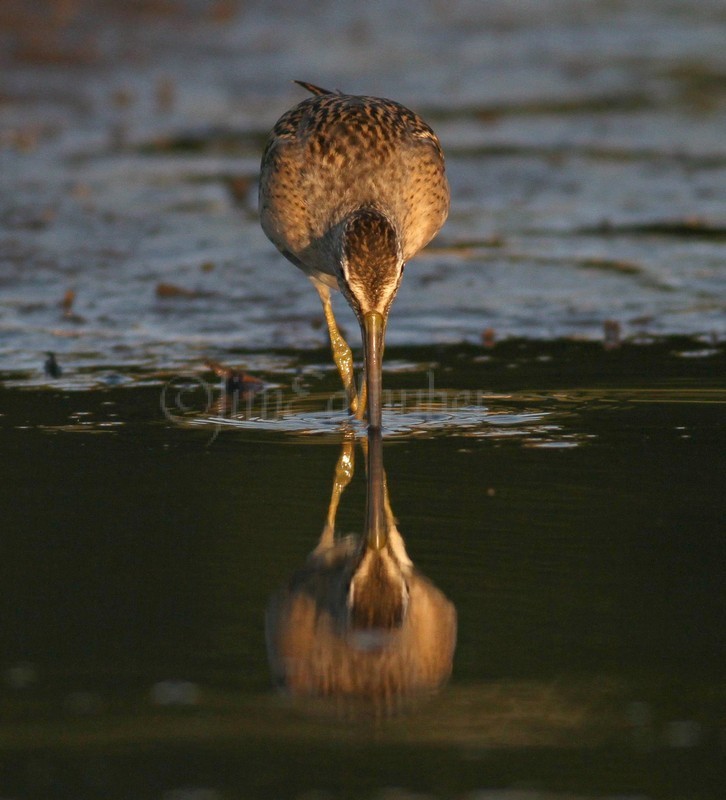
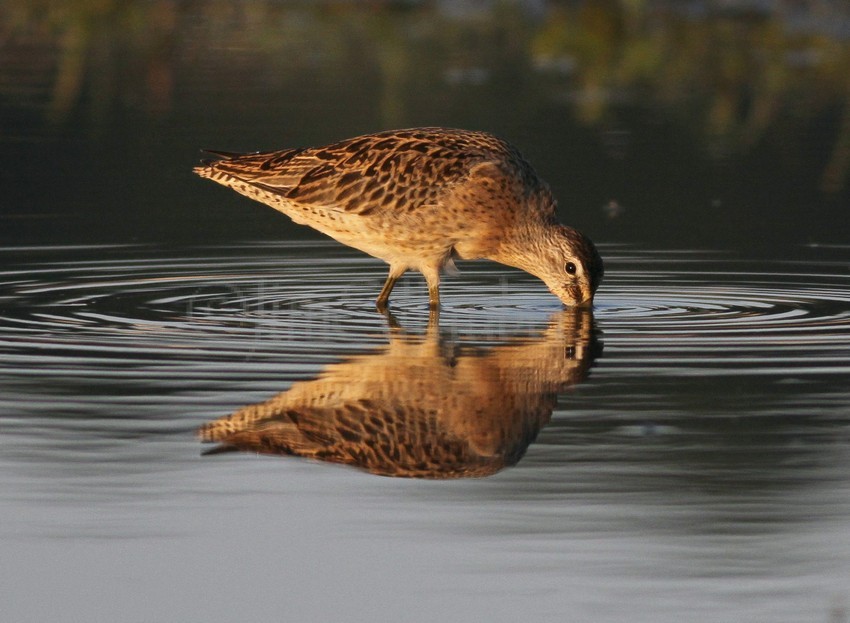
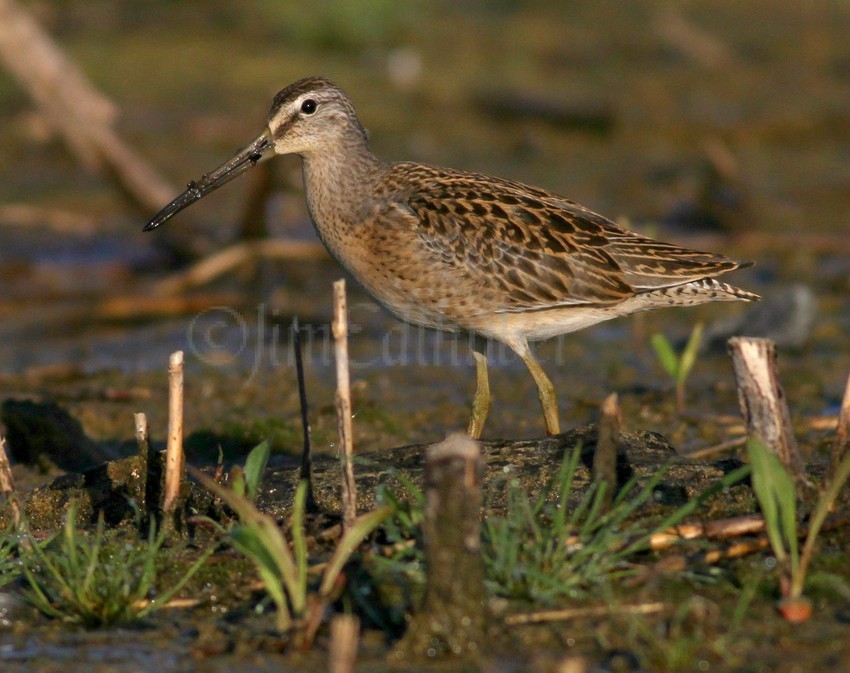
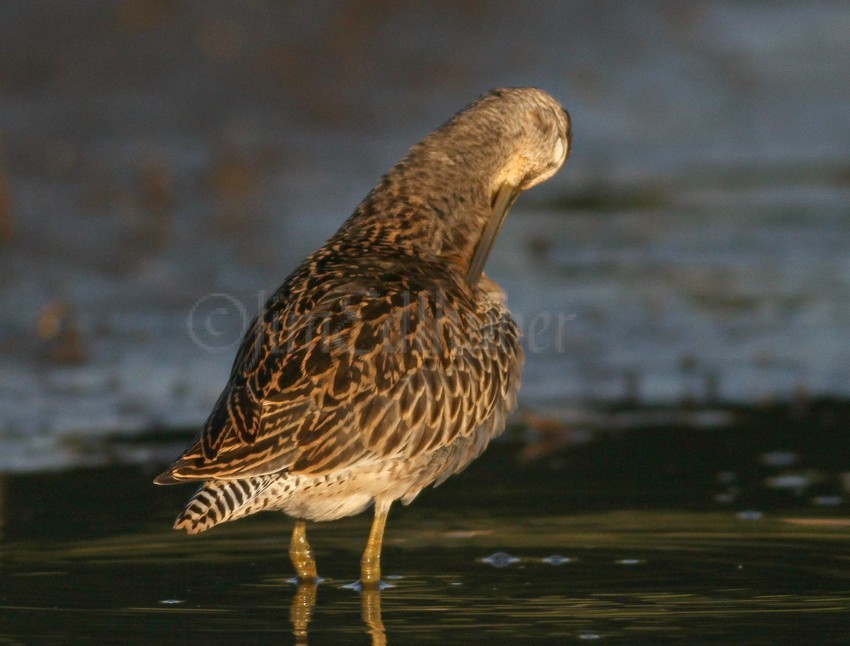
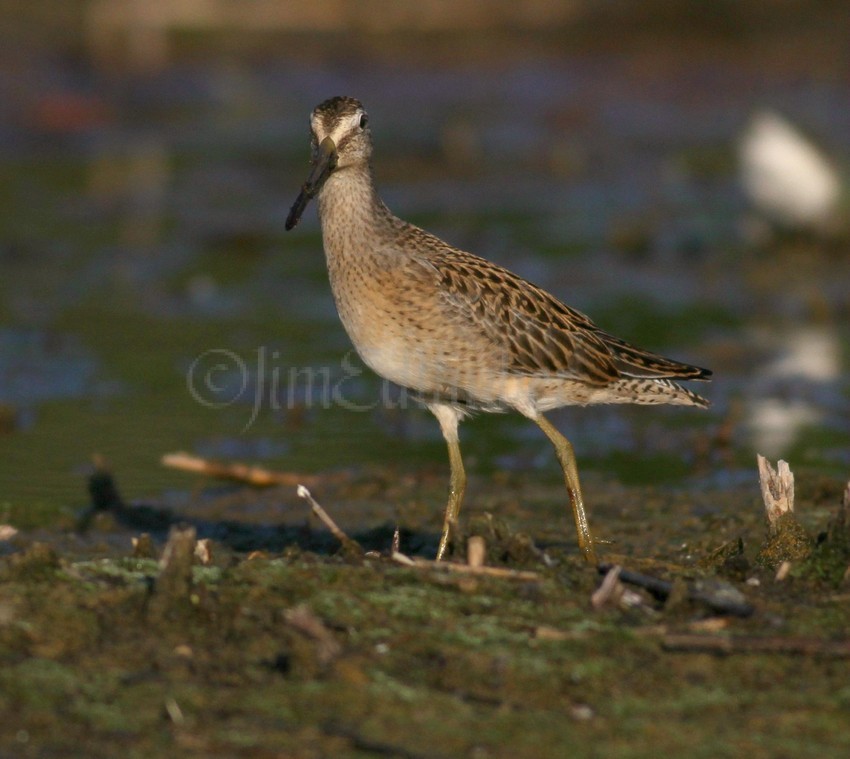
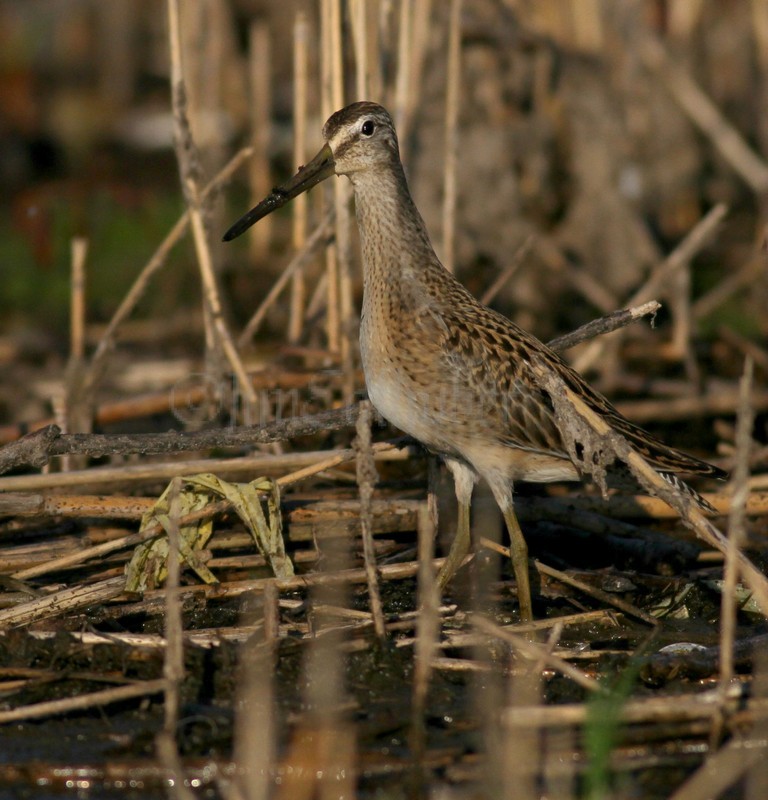
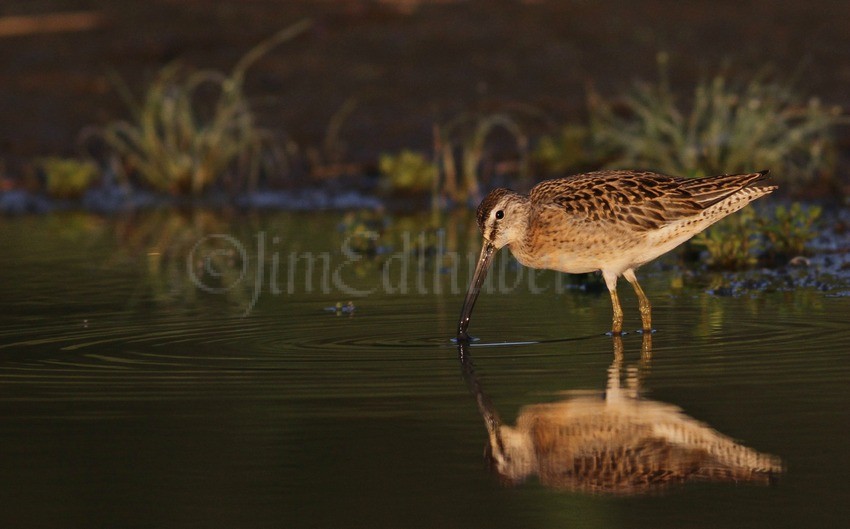
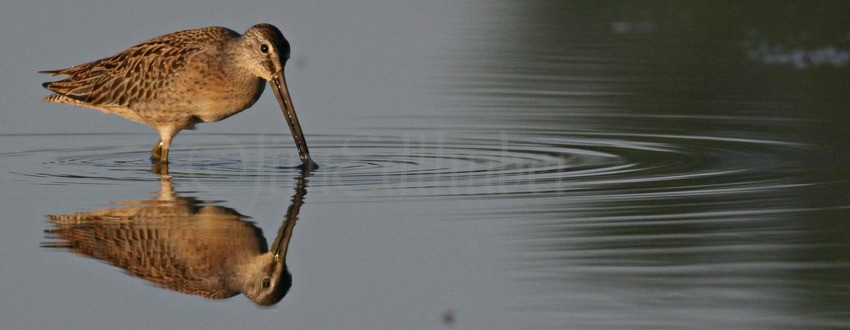

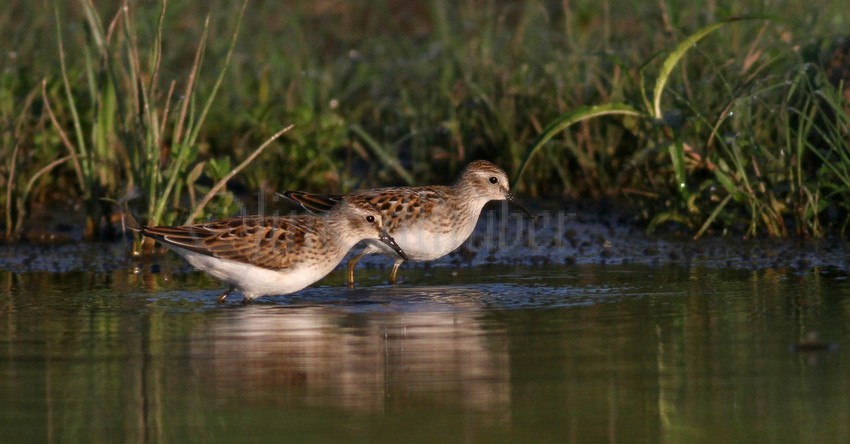
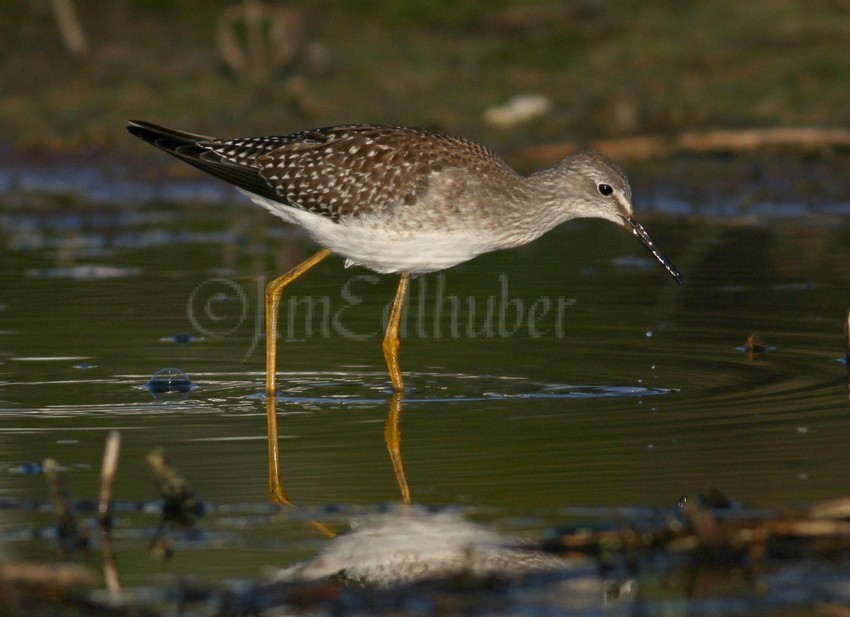
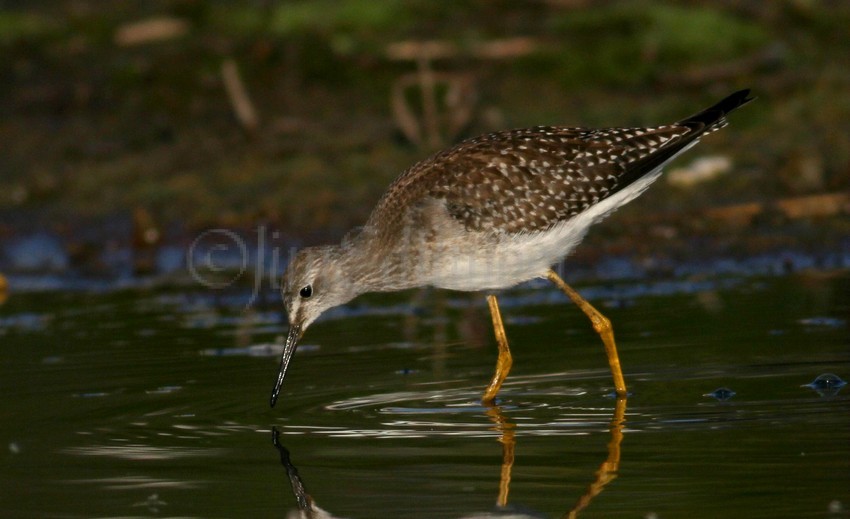
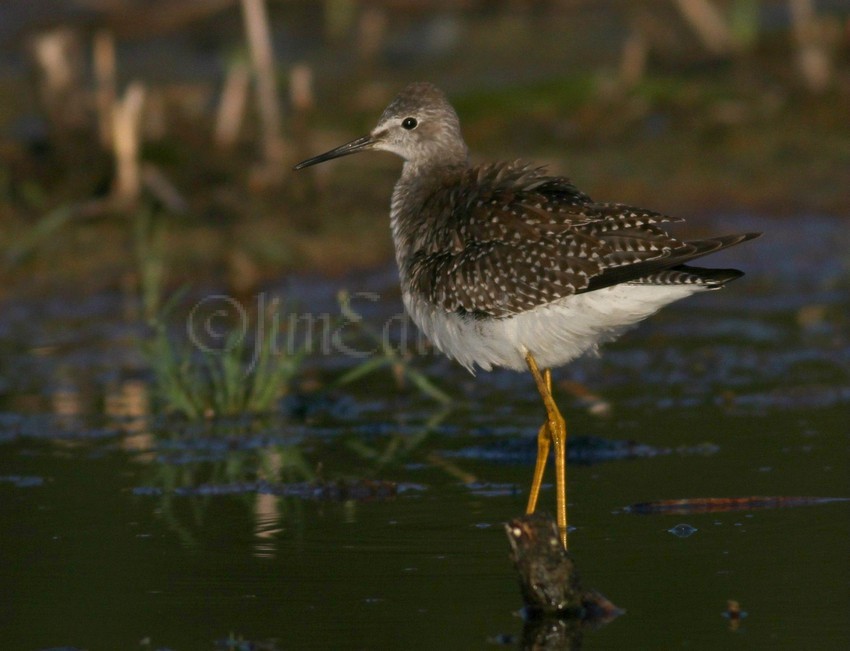
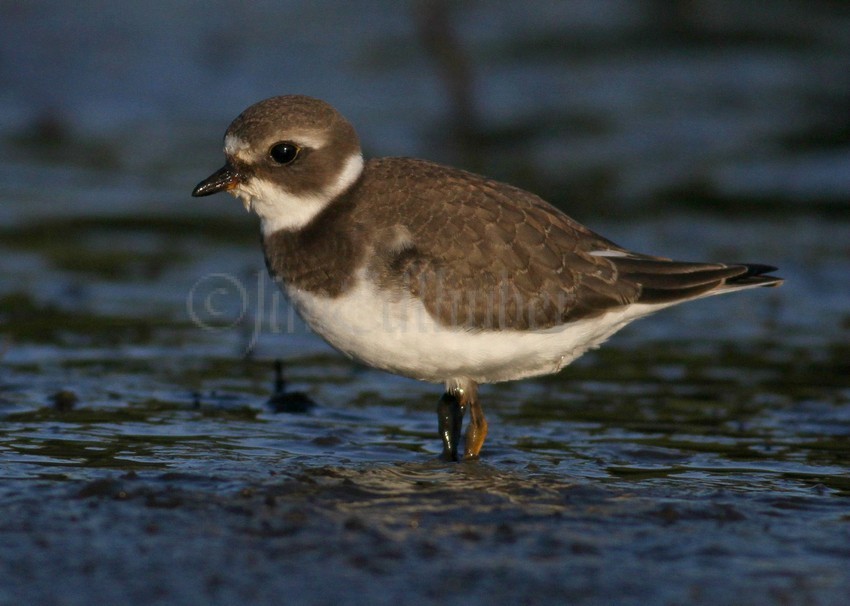
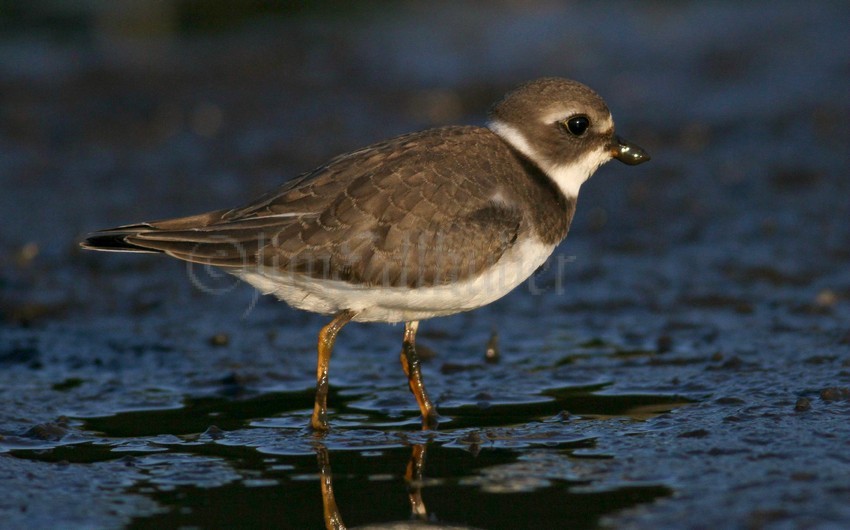
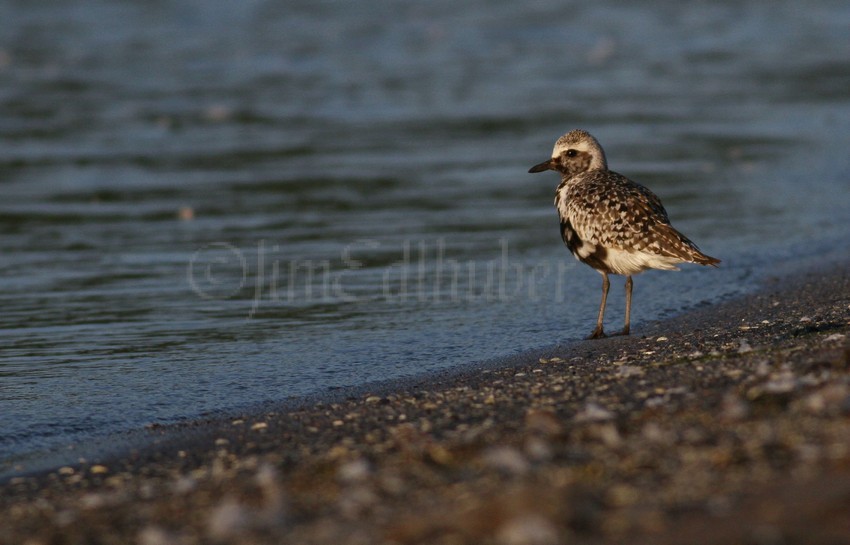
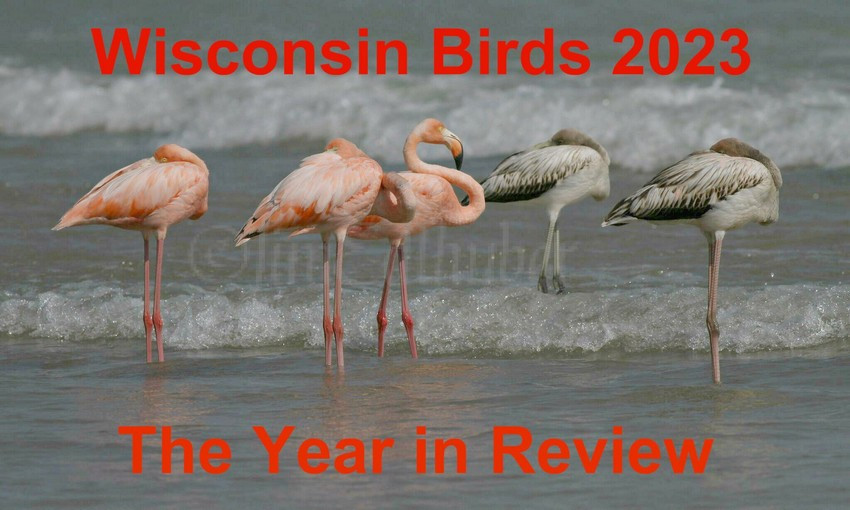
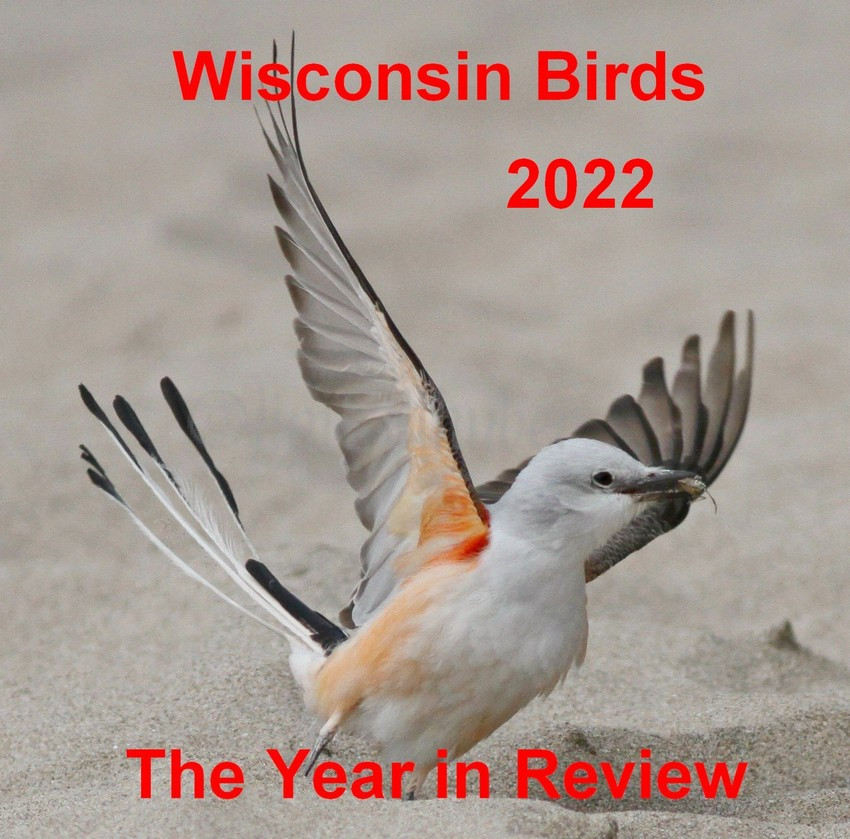
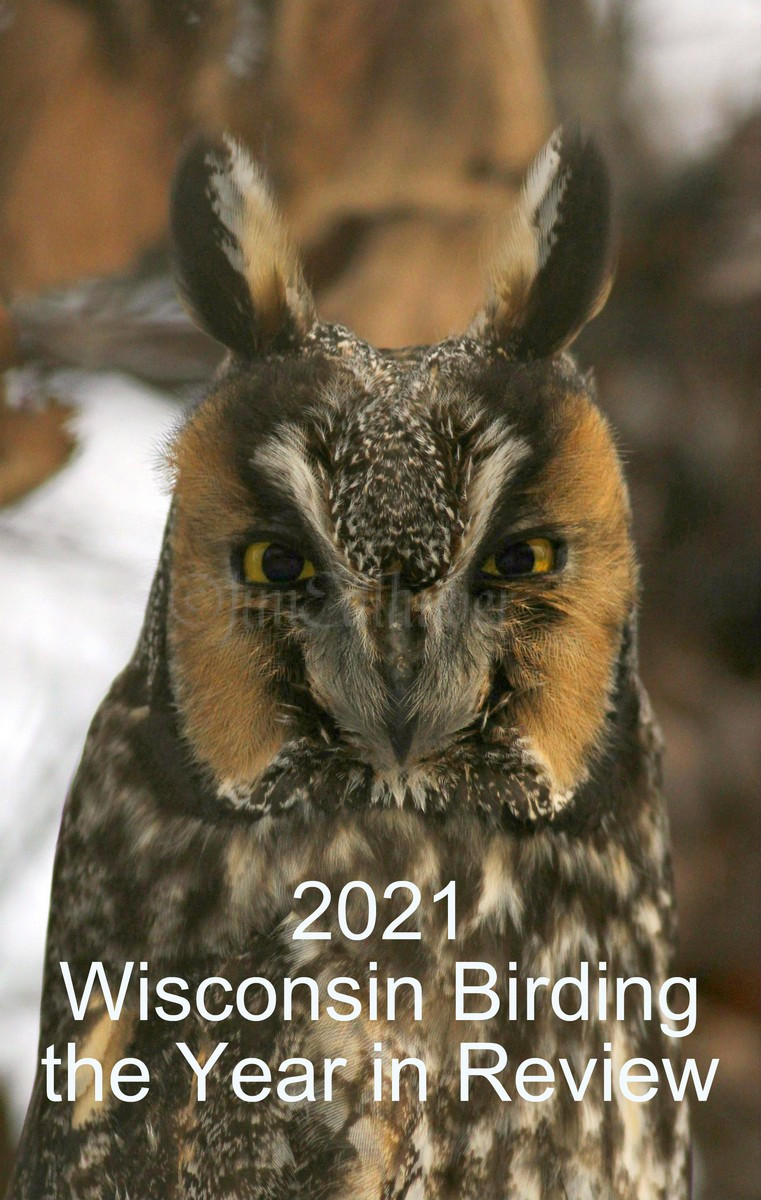
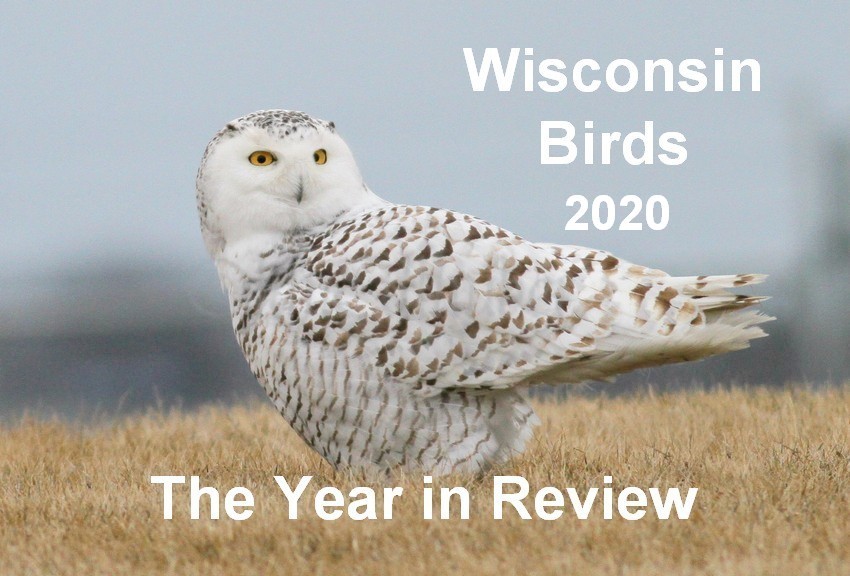
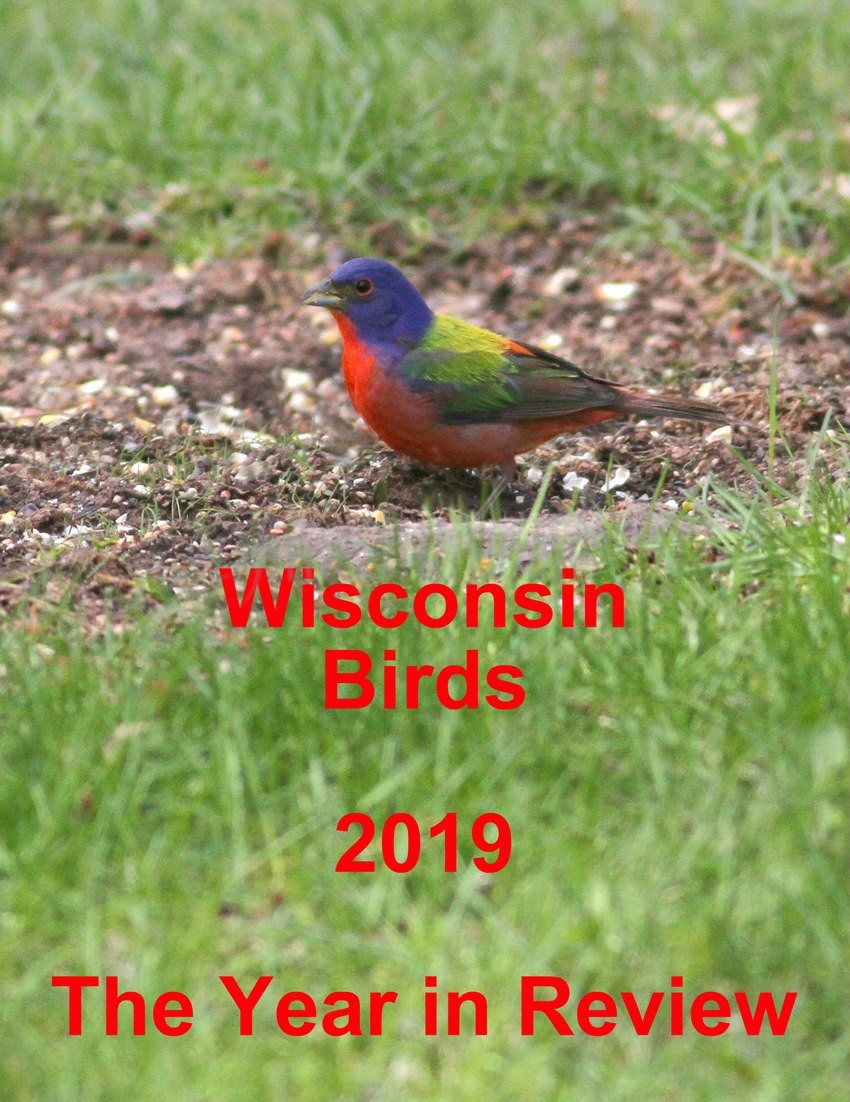
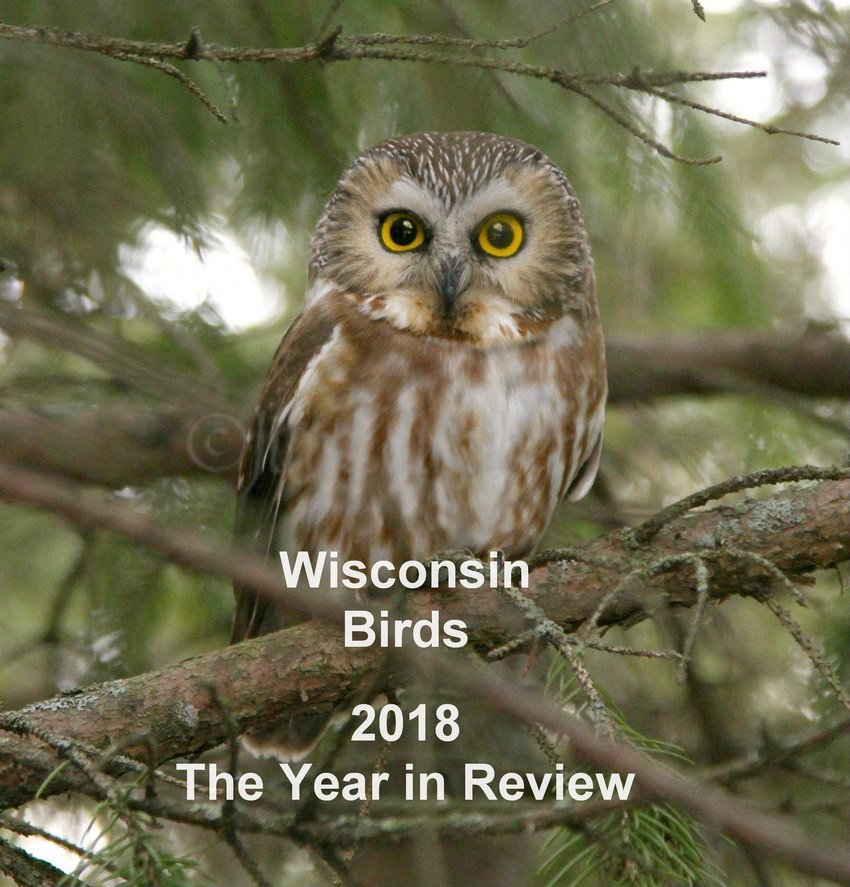
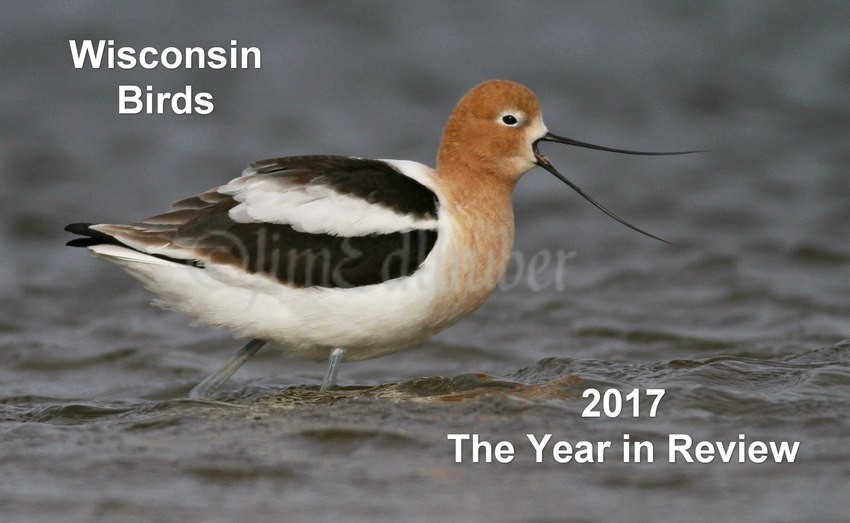
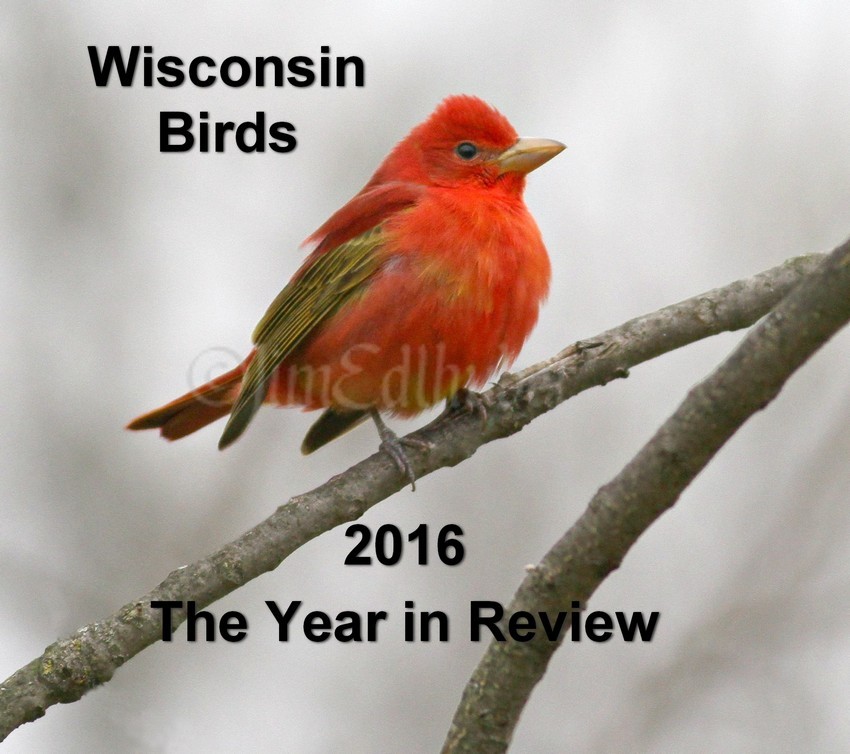
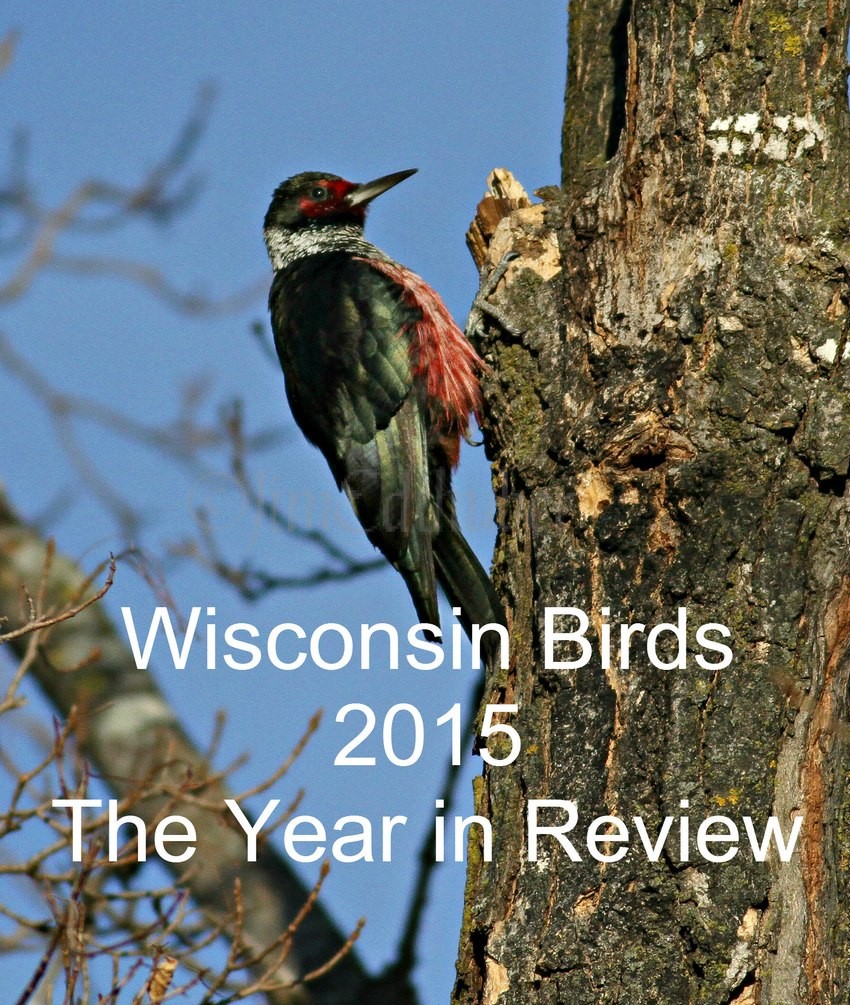
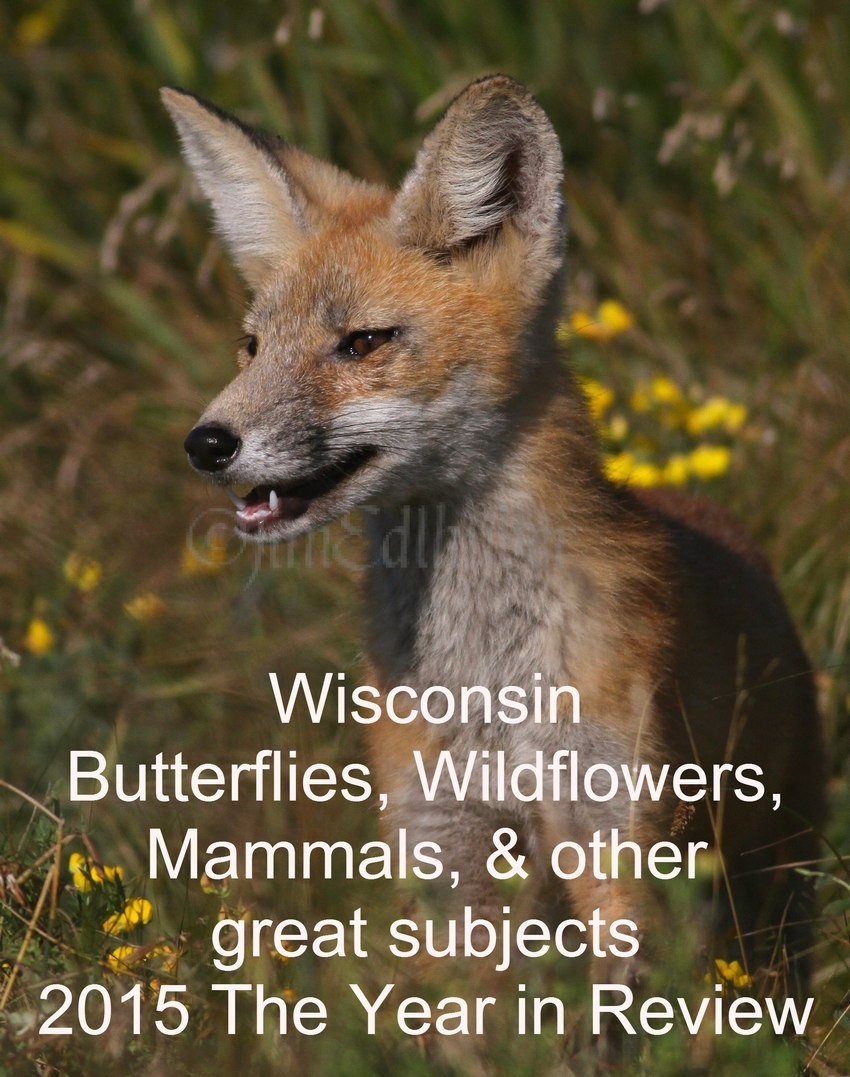
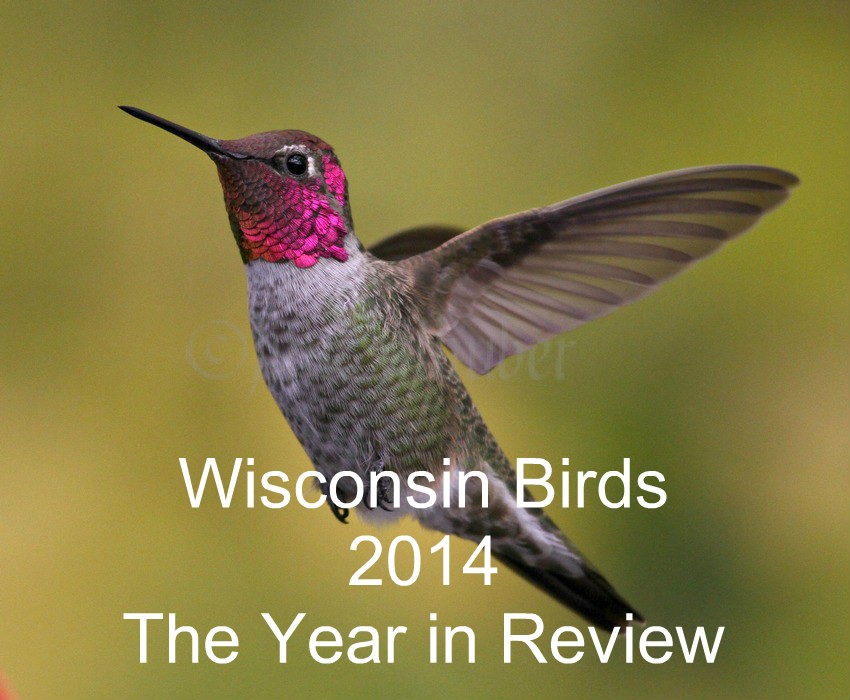
How do those white feathers stay so clean when their bills and long legs show the mud they’re wading through? Love the juvenile Yellowlegs – puffed out and ready to dance in that muck. The Plover is quite precious. He reminds me of a child who just got caught w/his mouth full of chocolate. Thanks for sharing these wonderful photos, Jim!
Elaine
Awesome pictures especially the reflective ones. Great job and once again, thanks for sharing .